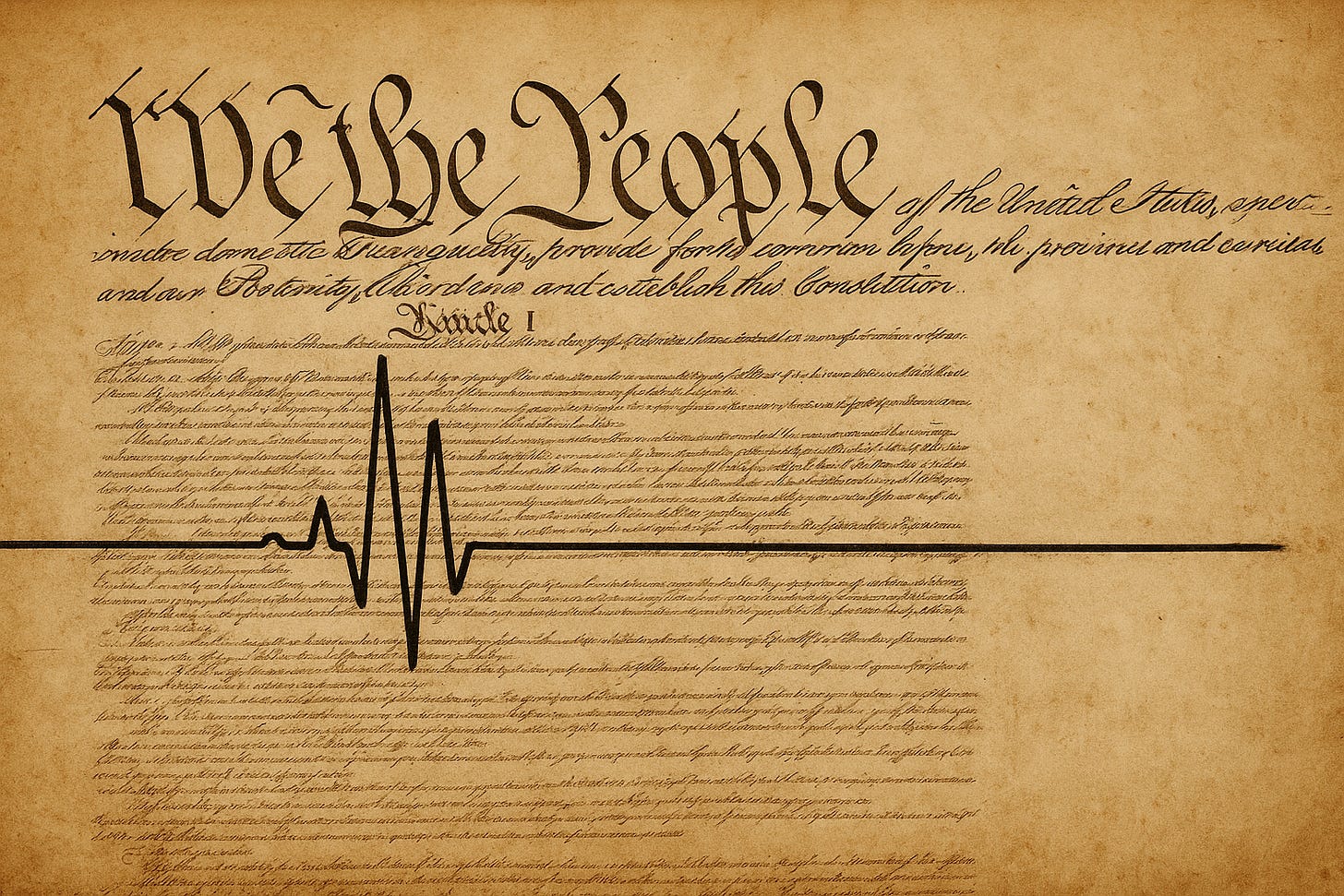The Quiet Disillusionment of a Living Document
What the Constitution’s longest silences reveal about America’s crises.

We are living through the second-longest period in our Constitution’s history without a new amendment. The last time the document changed was not to expand rights, safeguard democracy, or modernize governance, but rather to ensure that members of Congress couldn’t instantly give themselves a pay raise without voters noticing. The 27th Amendment, ratified in 1992, simply delayed salary hikes until after the next election. It was a leftover proposal from 1789, forgotten for two centuries until a determined college student revived it.
Since then? Nothing but thirty-three years of constitutional silence.
That silence is not benign. Amending the Constitution requires two-thirds of Congress and three-fourths of the states, a feat that feels nearly impossible in an era where “blue state” and “red state” are hardening identities, where gerrymandered districts erode representation, and where even state-level National Guards are wielded as partisan mascots. The document that was supposed to adapt has instead calcified, even as the ground beneath it trembles.
Silence doesn’t mean stability. In fact, it often signals the opposite. We are living through multiplying constitutional crises: an executive branch that stretches its power to the breaking point, legislation captured by financiers and donors, campaign finance guardrails dismantled, climate disasters mounting without coordinated response, and voting rights stripped from communities that are geographically and racially targeted. The crises multiply while the Constitution sits there like a houseplant no one waters, technically alive but wilting in the corner.
History tells us these silences are dangerous omens. The longest came after the 12th Amendment in 1804, which refined the Electoral College in the wake of Jefferson’s chaotic first election. It was a modest housekeeping measure, but it signaled something larger: the new republic was already straining under factionalism, improvising rules to keep its young political system from collapsing. After that, nothing for six decades. The nation grew, enslaved millions more, and fought bitterly over whether human bondage would expand westward.
All the while, the Constitution stood frozen.
When the silence finally broke, it did so with a roar: the 13th, 14th, and 15th Amendments abolished slavery, guaranteed equal protection under the law, and extended voting rights to Black men. These amendments didn’t just patch the system but remade it, signaling a rebirth of the republic after war. What the 12th had whispered about fragility, the Reconstruction amendments shouted about transformation.
And the transformation did not stop there.
In the early 20th century, a new generation introduced its own reforms: the 16th through 19th Amendments created an income tax, established direct election of senators, enacted (and later repealed) Prohibition, and, most significantly, secured women’s suffrage. Later, mid-century amendments reflected the anxieties and ambitions of their eras: the 22nd limited presidential terms, the 23rd gave D.C. residents a voice in presidential elections, the 24th abolished the poll tax, the 25th clarified presidential succession, and the 26th lowered the voting age to 18 amid the turmoil of the Vietnam War. For nearly two centuries, each burst of amendments responded to crisis, reform, or pressure from below, a democracy growing in fits and starts, but growing all the same.
Now compare that arc to our own era. The 27th Amendment of 1992 did not address rights, equality, or governance. It didn’t even confront a live crisis. It was an afterthought from the founding era, finally ratified because it was an easy way for states to thumb their noses at Congress. Its entire message was one of congressional navel-gazing: a pay-raise delay disguised as accountability. If the 12th signaled fragility and the 13th–15th signaled rebirth, the 27th signals drift or a politics more concerned with appearances than solutions, more about managing optics than meeting crises.
It’s like ending a symphony not with a crashing crescendo but with someone clearing their throat.





